About 70 per cent of the process are still conducted manually by hands
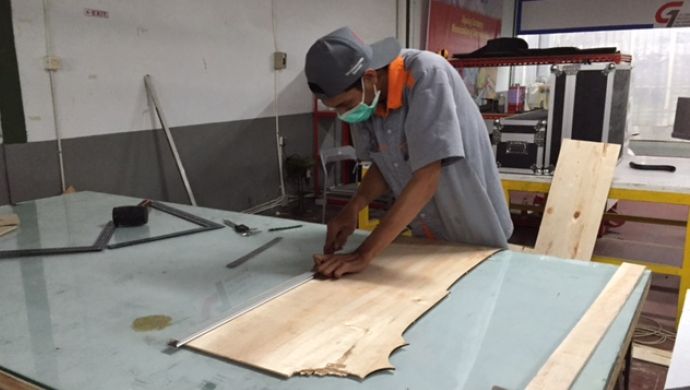
On our previous in-photos sessions, e27 had visited various startup headquarters and coworking spaces to get a clear visual on what the startup life is all about.
Once, we even went to a government institution focusing on Smart City initiatives, immersed ourselves in the hustle-and-bustle of Harbolnas at the warehouse of a fashion e-commerce startup, and saw the kitchen of a Jakarta-based food startup to see how their products are being prepared for delivery.
But this time, we took a road trip to the Cisaranten Wetan regency in West Java, just outside of Bandung, to check out a drone manufacturing factory operated by Global Inovasi Informasi Indonesia (GIII).
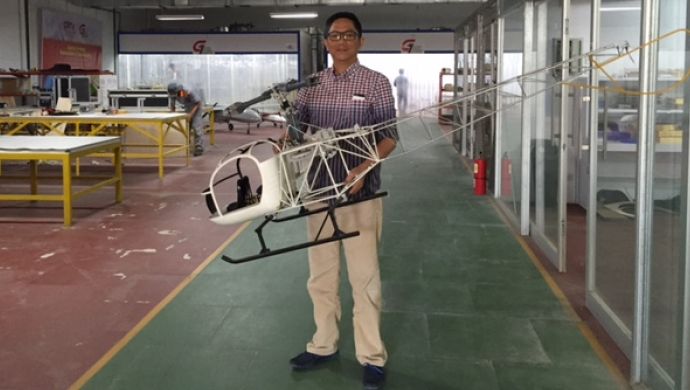
Dian Rusdiana Hakim, ATS founder, posing at the main room of the factory
After a three-hour journey along the highway from Jakarta, views of rolling hills and paddy fields were immediately replaced with factories and office buildings as we entered Bandung’s surrounding industrial areas.
Also Read: Out of the lab to the world: AeroLion goes from researching drones to solving real-world problems
GIII is a subisidiary of PT Aero Terra Indonesia. It is a sister company of AeroTerrascan (ATS), the Indonesian drone company who recently took part in the Menembus Langit project. While ATS focussses on sales and R&D, GIII is dedicated to manufacture the drones.
In total, the companies are being run by 70 people with less than 25 working in the factory that day.
Once the tour began, we learned that 70 per cent of drone manufacturing process are being conducted manually by hands.
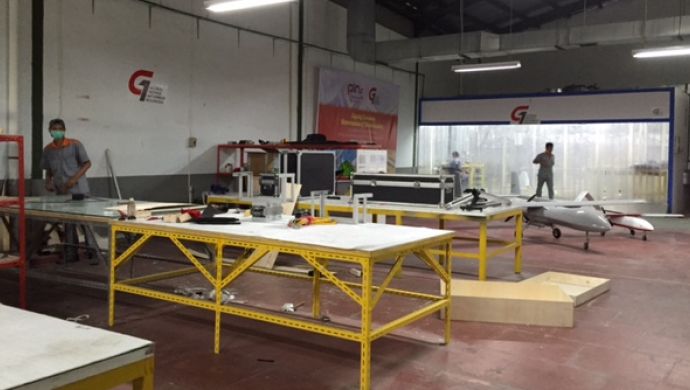
The main room of the factory consists of several desks where staffs perform their work. In the right side are examples of drones the company had produced
The drones are mostly made of carbon fibre. After the material was being pressed into a mold, the honeycomb was inserted into the frame of the drone. The drones are then being taken away for colouring and polishing process, which is also conducted manually.
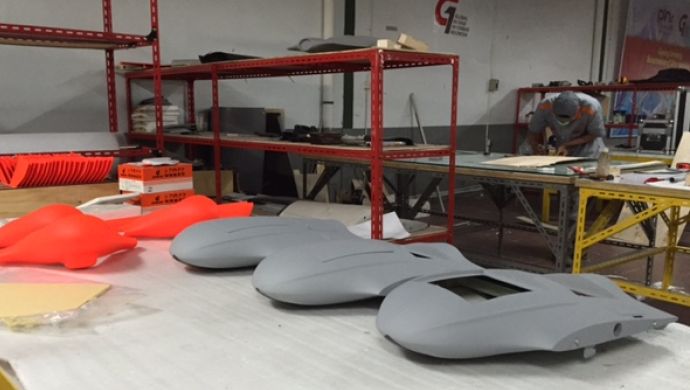
The drones’ body
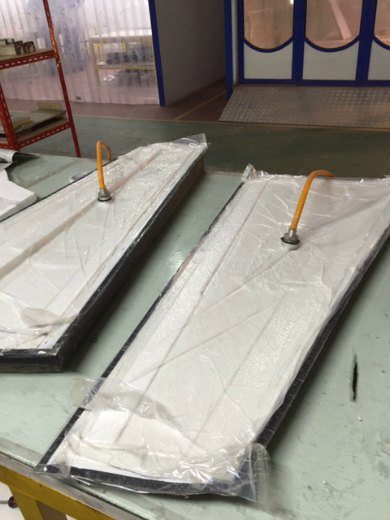
Getting the air out through a vacuum suction process
ATS clients are mostly corporations who are using the drones for purposes such as geo-mapping. For the appearance, ATS also accepts customised design by its clients. Clients from corporations tend to choose bright colours, while clients from the army tend to opt for grey or green.
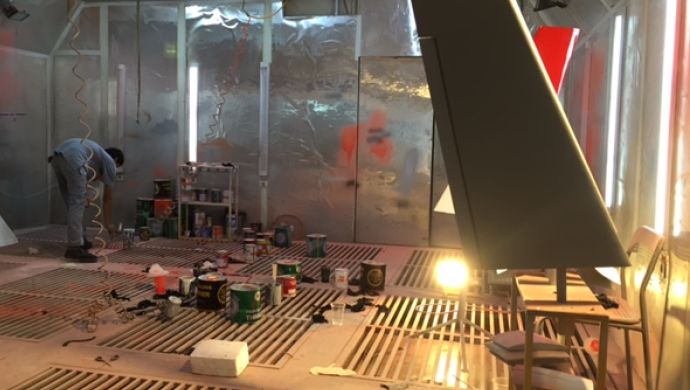
Painting process
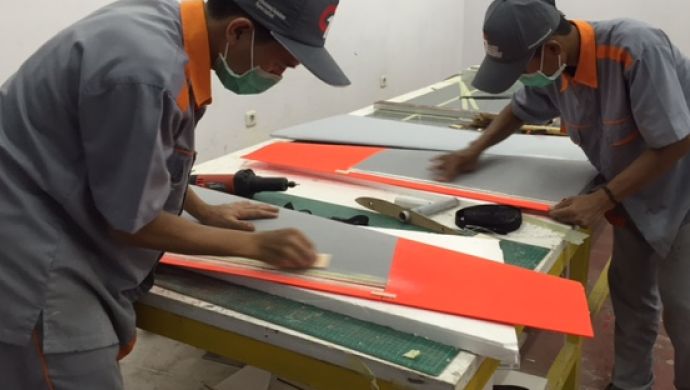
Polish makes perfect
Also Read: This Singapore startup wants to roll out autonomous drones to shake up how warehouses operate
We also got to meet Eman Sulaiman, who was the head of the factory. Despite having never had any university education, Sulaiman was able to taught himself everything about aerodynamics, led by his passion in everything related to aviation. He was also credited for his ability to explain complex details in simple, everyday language.
During the Menembus Langit trial flights, Sulaiman took the role of flight director.
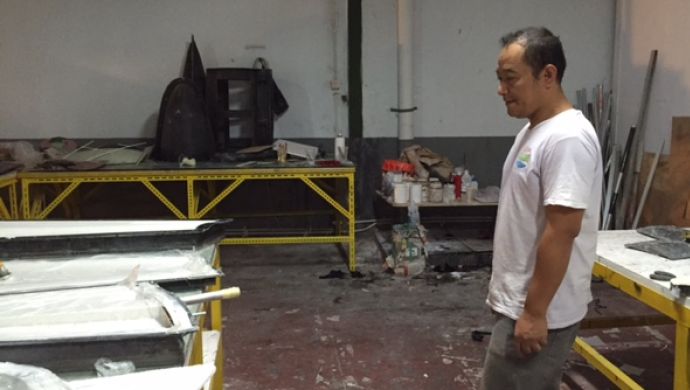
Eman Sulaiman, GIII Factory Head and Menembus Langit Flight Director
Once we were done looking at the drone-making process, we moved on to check out a row of small offices on the side. This is where founder Dian Rusdiana Hakim scribbled down ideas and calculations for new projects.
We were allowed to take a sneak-peek on one of the side projects that ATS is working on, which is a smart car that can be folded.
“Mr. Dian recently bought a smart car from Germany … and he decided that ‘Yeah, I think we can try to make one,” explained Valencia Mega Stefany, a Menembus Langit spokesperson, who accompanied us during the tour.
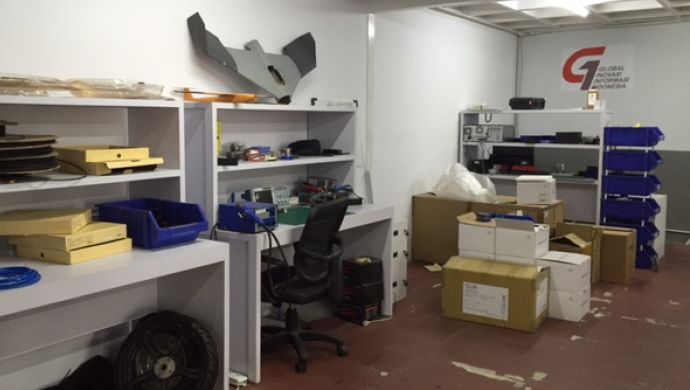
Let’s play a game called find the Ai-X1 drone in this room
The post In Photos: Drone-making at Global Inovasi Informasi Indonesia’s factory appeared first on e27.